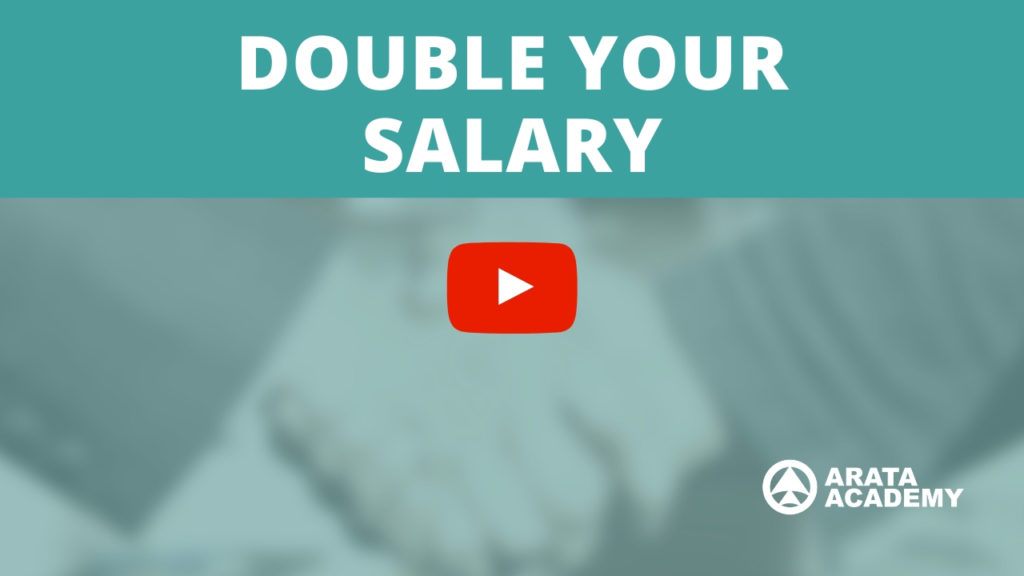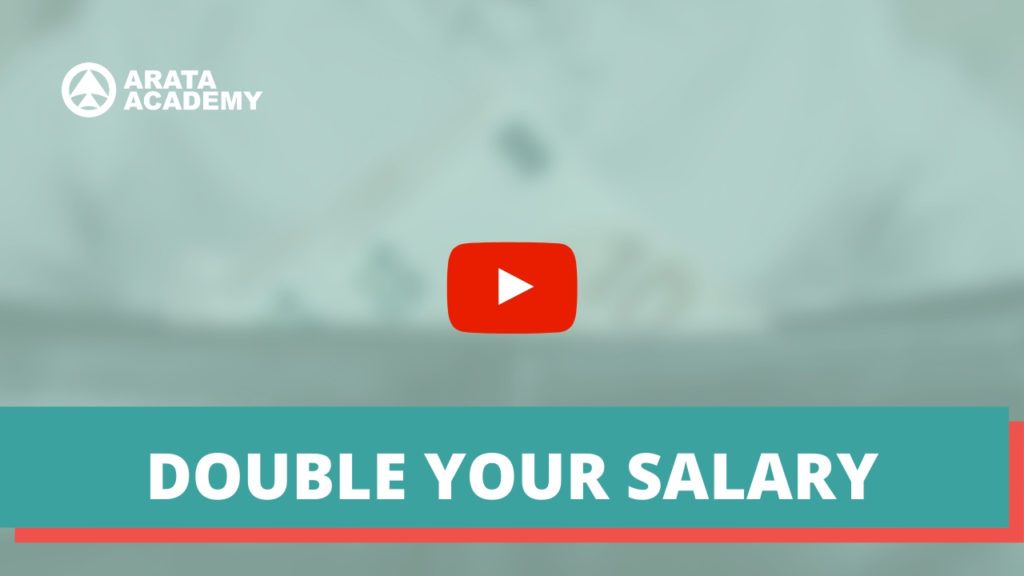Hello! Seiiti Arata. Imagine that you have a headache. You go to the pharmacy and they give you two medicine options. A remedy is general for pain. The other remedy is specifically for headaches.
Which of the two medicines would you choose to take?
If you’re like most people, you would choose to take the specific remedy for headache. The other remedy is more comprehensive and promises to cure any pain. But the headache remedy seems to be exactly what you need.
This simple example shows how we’re conditioned to believe that the more specialised something is, the better it will be.
This same thinking has been used as a rule by the labour market for years. To this day, it’s normal that the more specialised a professional, the greater their salary is.
This is due to the law of supply and demand. More specialised professionals are rarer in the market. In addition to this, they probably possess unique knowledge and experience. That’s why people are more willing to pay more to hire these professionals with expertise. It’s critical that you understand this if you want to increase your salary.
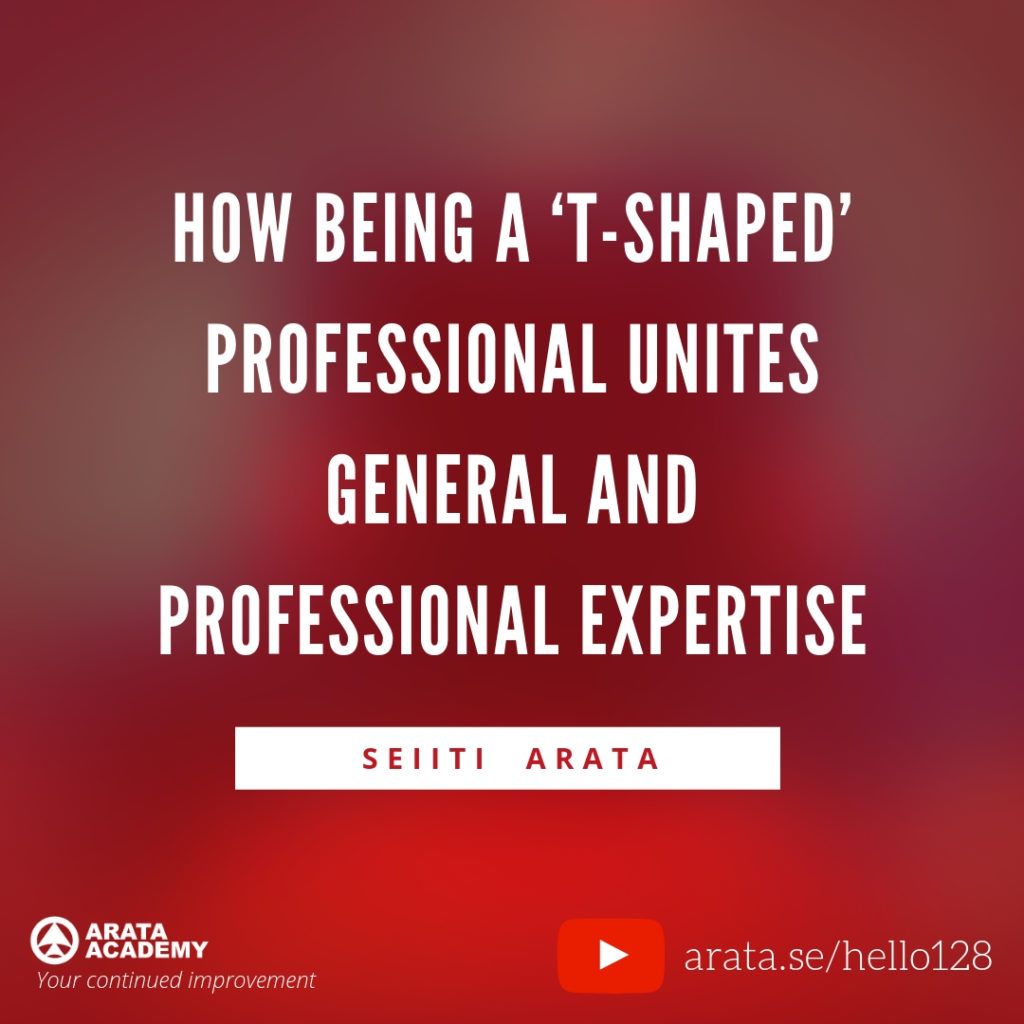
However, that logic has changed over the last few years. Nowadays, in addition to having expertise in a specific area, you also need to be knowledgeable in several other areas.
Be a generalist-specialist professional
Imagine that we’re getting to know each other today. What would be your answer to the famous question “what do you do for a living?”.
Now read what you wrote and compare it to the example I gave at the beginning of our conversation. Does your presentation look more like a general remedy for all aches or a specific headache remedy?
Ideally, your answer shouldn’t be at either end of the scale. Currently, what is most valued by the market is a professional with ‘T-shaped skills’, or the generalist-specialist professional.
In recent years, companies have begun to realise that it’s not enough for a professional to be extremely skilled in a work area. They also need to be knowledgeable in several other areas, even if it is less in-depth knowledge.
This is what is called a ‘T-shaped’ professional.
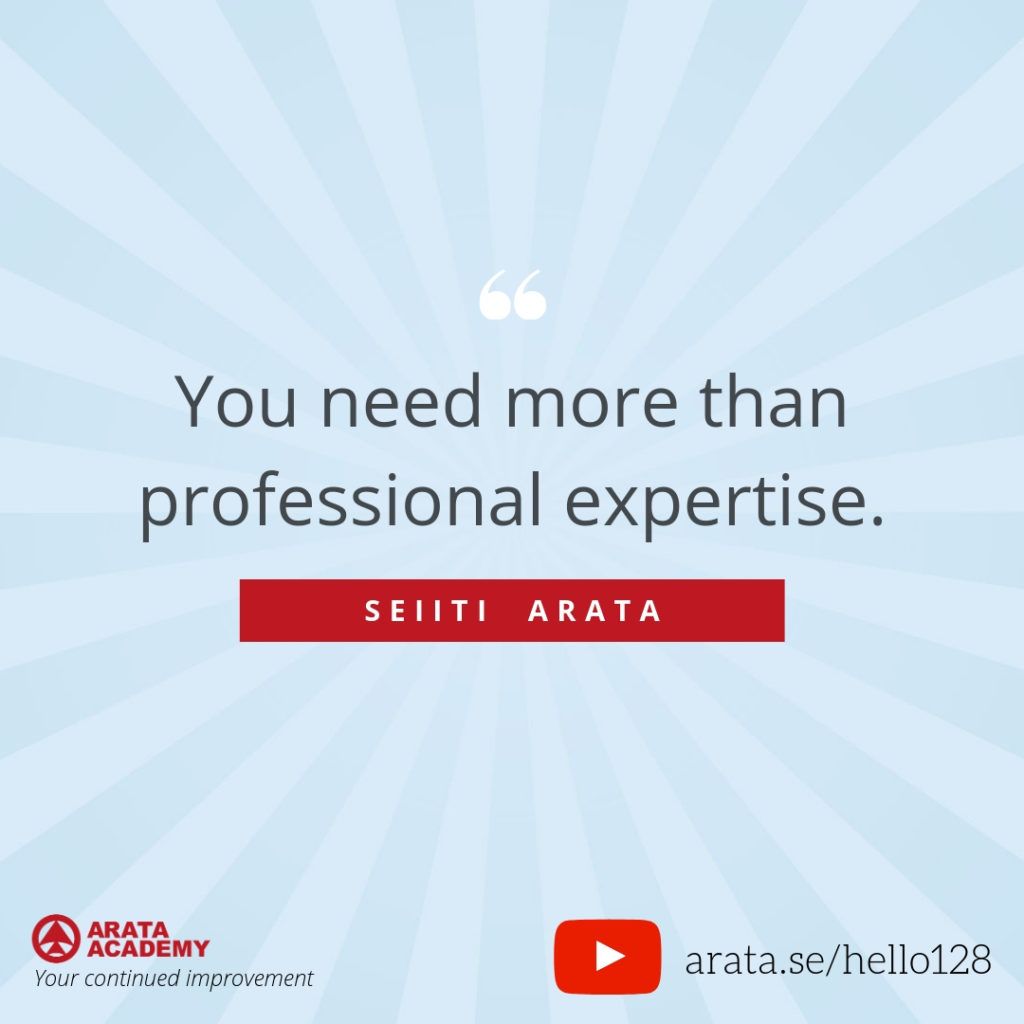
Imagine the image of the letter T. The top of the letter represents the broad, generic, horizontal knowledge. The base, however, represents specialized, deep, vertical knowledge.
Remember the exercise we did just now? How did you present yourself? Did you say something basic like “I’m an architect, I’m a journalist, I’m an administrator”?
The vertical part of ‘T’ shape requires you to have a more specific presentation. For example, “I am an architect with a focus on sustainable buildings that use wood.” “I’m an investigative journalist in the food industry.” “I’m an administrator of nongovernmental organisations focused on helping children in need.”
How to become a ‘T-shaped’ professional
Now that you’ve understood the importance of being a generalist specialist professional, the question arises of how to become a ‘T-shaped’ professional.
First we’ll consider the vertical part of the model, of specialised knowledge. To become a specialist, you need to acquire two things: knowledge and experience.
To acquire knowledge, the traditional route is through schools and colleges. There’s also the super efficient path of self-learning.
Since you’re here, taking part in this conversation, I can already assume you have self-taught behaviour. You’re here right now, learning how to be a better professional. You’re already a person that’s interested in a process of continuous improvement.
In addition to traditional academic training, this is the best way for you to acquire specialised knowledge. It’s searching for videos on the internet. It’s reading a book about your area of expertise for at least 30 minutes every day. It’s observing how the great professionals of your area solve problems.
You should consciously conduct daily activities with the specific purpose of strengthening your knowledge in that area of expertise.
At the same time, you should put this knowledge into practice. You must gain experience.
Ideally, this experience should be gained by doing internships, temporary jobs or even a fixed job. In this way, you gain experience on a paid basis.
If you can’t get a paid job, the way to gain experience is to volunteer and create your own projects.
You can volunteer to do your work for free at NGOs, schools, or other similar institutions. Or you can create a company yourself, if you offer to do jobs as a freelancer, create an initiative on the internet.
For both knowledge and experience, you will need proactivity. That is, you can’t sit around waiting for opportunities to arise. You need to put some work in and create your own opportunities.
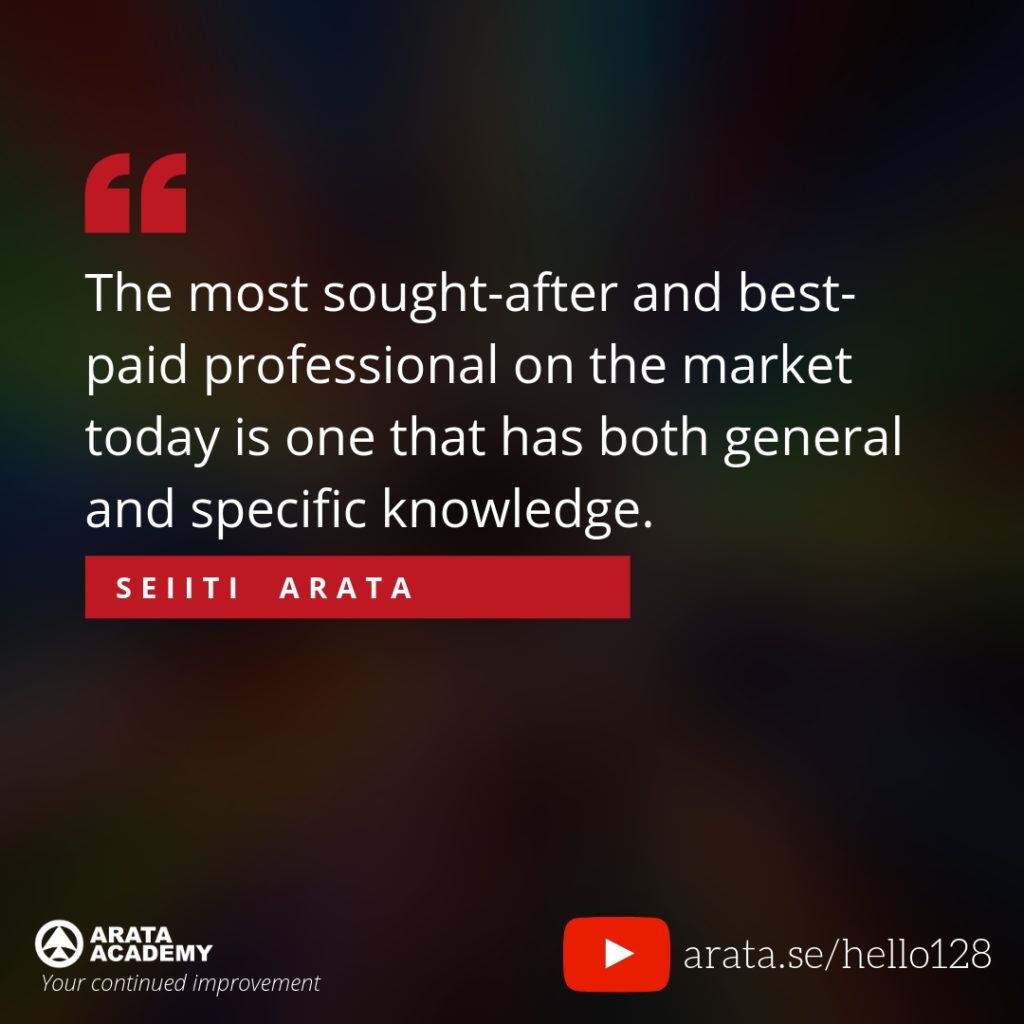
When you do this for several years, you will gradually become the best specialist in that area. But this isn’t enough for you to be the highest paid professional.
You need to explore other areas of knowledge
With focused knowledge and experience, you become an expert in one area of expertise. You form the vertical part of a ‘T-shaped’ professional.
But that’s only half the way. You still need to form the horizontal part of the ‘T-shape’. You still need to explore other areas of knowledge. Areas that will turn you into a more complete professional.
Ideally, this knowledge from other areas will help you solve different kinds of problems.
You can start with your own personal development. You can learn to be more productive, to manage your time better, to be more focused. You can learn how to change your diet in order to have more energy, how to meditate to improve your concentration, how to sleep better to be healthier.
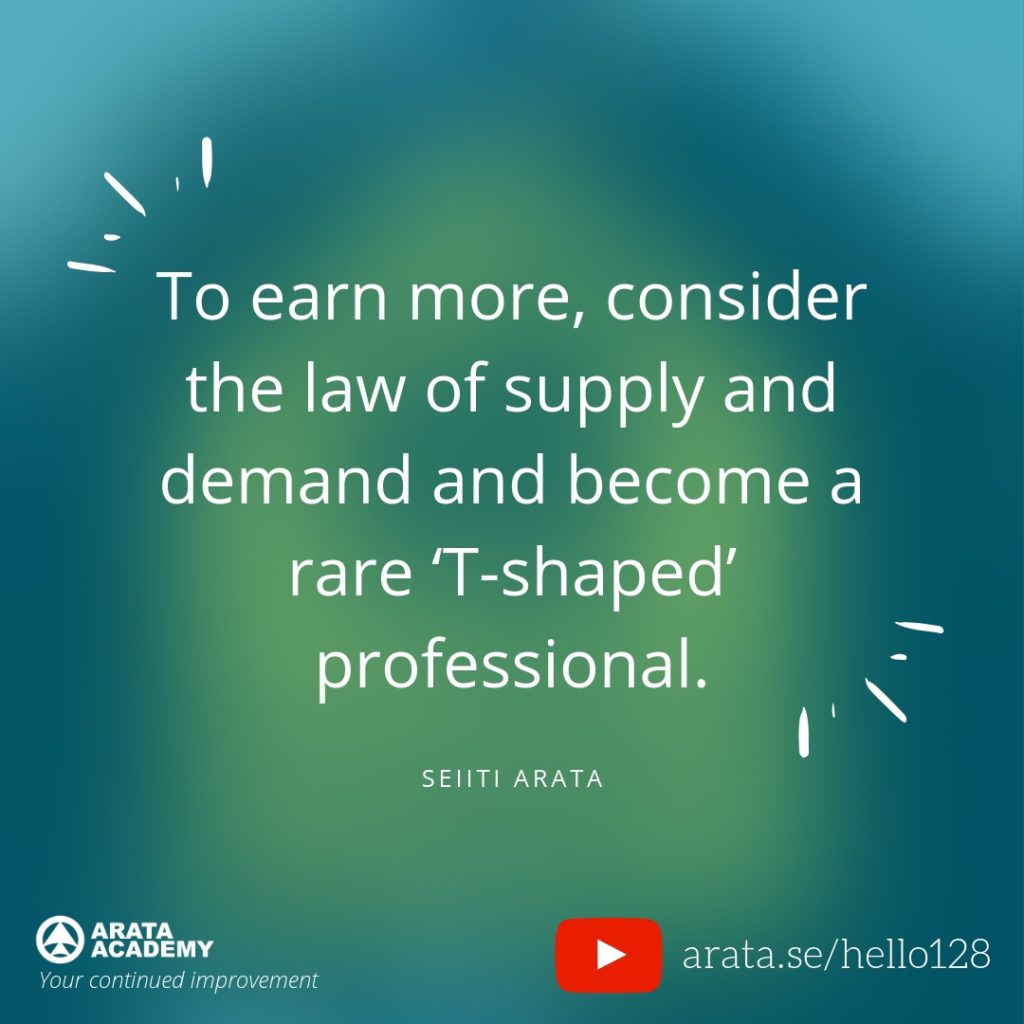
Then you can explore the so-called interpersonal intelligence. You can learn how to deal with people better, how to be more empathetic, how to deal with difficult people.
Finally, you can hone your analytical intelligence. You can learn how to handle numbers and statistics, how to deal with technology, how to invest money.
You will also need a new kind of knowledge: know how to sell yourself. It’s no use for you to have great expertise and to explore other areas of knowledge, if you don’t know how to sell your own value.
Even if you don’t work with trade or sales, you still need to know how to sell yourself.
It’s through the sale that you will explain to your potential client or to your potential employer that you can do something of great value.
Let’s do an exercise together. Close your eyes and try to imagine yourself persuading a company or client to hire your services. You need to convince that person to hire you, and not your competitor.
How do you feel? Some people have very negative feelings associated with selling. We usually associate salesmen with manipulation, with fooling others, with taking advantage of people.
This is a prejudice you have to give up if you want to have greater professional recognition. Don’t make the mistake of thinking that your work will stand out by itself and that opportunities will just fall into your lap. You have to sell yourself.
The job market rewards those who stand out
Years ago, you could differentiate yourself by having a degree. However, with each passing day, these kind of titles are less important.
If you want to have greater professional recognition and receive more money, you need to stand out. You need to remember the law of supply and demand and become a rare professional in your market. A professional that employers and clients look for a lot and are willing to pay more to have the privilege of hiring.
Choose an area of expertise, select a niche market, and begin to gain knowledge and experience until you become the best in the world in that niche.
At the same time, invest in broader areas of knowledge to develop yourself better as a person, to relate to others, and to be comfortable with new technologies.
Life has changed. There is much more competition today. Not just other professionals, but also algorithms, robots and other innovations.
Invest in your process of continuous improvement to differentiate yourself. The job market rewards those who stand out, both giving greater recognition as offering better wages and payments.
If you want to know how to be more valued by the job market and get paid more, have a look at our Duplicate Your Salary course and watch a special class that’s available on https://arata.se/dys
